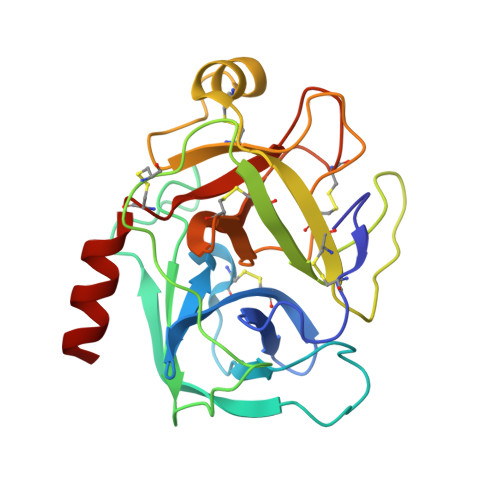The impact of cryosolution thermal contraction on proteins and protein crystals: volumes, conformation and order.
Juers, D.H., Farley, C.A., Saxby, C.P., Cotter, R.A., Cahn, J.K.B., Holton-Burke, R.C., Harrison, K., Wu, Z.(2018) Acta Crystallogr D Struct Biol 74: 922-938
- PubMed: 30198901
- DOI: https://doi.org/10.1107/S2059798318008793
- Primary Citation of Related Structures:
5UN3, 5UU7, 5UU8, 5UU9, 5UUA, 5UUB, 5UUC, 5UUD, 5UUE, 6AVL, 6B6N, 6B6O, 6B6P, 6B6Q, 6B6R, 6B6S, 6B6T, 6D5N, 6D5O, 6D5P, 6D5Q, 6D5R, 6D5S, 6D5T, 6D5U, 6D6E, 6D6F, 6D6G, 6D6H, 6DZF - PubMed Abstract:
Cryocooling of macromolecular crystals is commonly employed to limit radiation damage during X-ray diffraction data collection. However, cooling itself affects macromolecular conformation and often damages crystals via poorly understood processes. Here, the effects of cryosolution thermal contraction on macromolecular conformation and crystal order in crystals ranging from 32 to 67% solvent content are systematically investigated. It is found that the solution thermal contraction affects macromolecule configurations and volumes, unit-cell volumes, crystal packing and crystal order. The effects occur through not only thermal contraction, but also pressure caused by the mismatched contraction of cryosolvent and pores. Higher solvent-content crystals are more affected. In some cases the solvent contraction can be adjusted to reduce mosaicity and increase the strength of diffraction. Ice formation in some crystals is found to cause damage via a reduction in unit-cell volume, which is interpreted through solvent transport out of unit cells during cooling. The results point to more deductive approaches to cryoprotection optimization by adjusting the cryosolution composition to reduce thermal contraction-induced stresses in the crystal with cooling.
Organizational Affiliation:
Department of Physics, Whitman College, 345 Boyer Avenue, Walla Walla, WA 99362, USA.


















